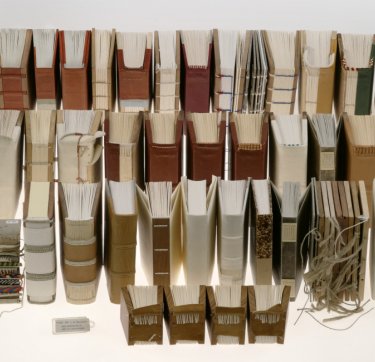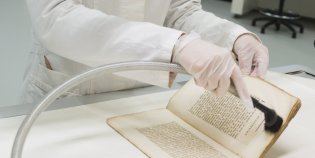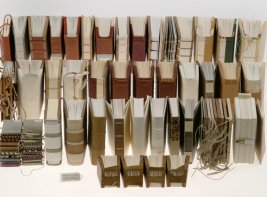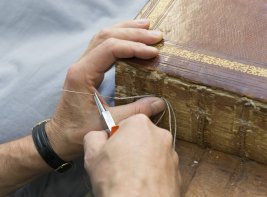Preventive conservation
At the KB, we do our best to ensure that books are not damaged. We do this through preventive conservation, which includes keeping books safe, stored and clean. We also ensure that books are examined in the safest possible manner, for example by placing them on a cushion when they are being inspected. Preventive conservation is one of the KB's areas of expertise.
What is preventive conservation?
Books age, and as they age, the material deteriorates. Books can also get damaged by moisture, mould and insects - and simply by being used, of course. At the KB, we do our best to delay those processes and prevent damage. The books are stored in clean warehouses, where it is not too hot, too dry or too humid. The warehouses are also checked for insects and moulds. When books are exhibited, we make sure that they suffer as little damage from light exposure as possible. Fragile books are packed in well-fitting boxes, and can be inspected in secured reading rooms.
Why is preventive conservation important?
The KB's collection is very big: about 4 million books, with 50,000 new ones added every year. With a collection of that size, you simply cannot keep an eye on things by checking every book, or even every shelf or cabinet. With preventive conservation, we ensure the best possible conditions for the entire collection, preventing any problems from occurring in the first place.
A few examples of preventive conservation
We know the risks that threaten a library collection. Water damage caused by (for example) leakage is disastrous for libraries, which is why we have water detection systems everywhere. If water appears somewhere, we know about it immediately. Also, the bottom shelves of the cabinets are not on the floor, and there are materials on hand in the warehouses to deal with water-related problems.
Preventive conservation is not just about light, conditions and insects, however: preventing theft and loss is also part of it. The warehouses, reading rooms and books are therefore all secured in different ways. To prevent books from being lost, it is important to register each of them and keep track of where they are. Our staff are trained to always put the books back in exactly the right place, making sure that they do not get lost simply because they were placed between the wrong books or on the wrong shelf. The same goes for newspapers, magazines and other materials, of course.




